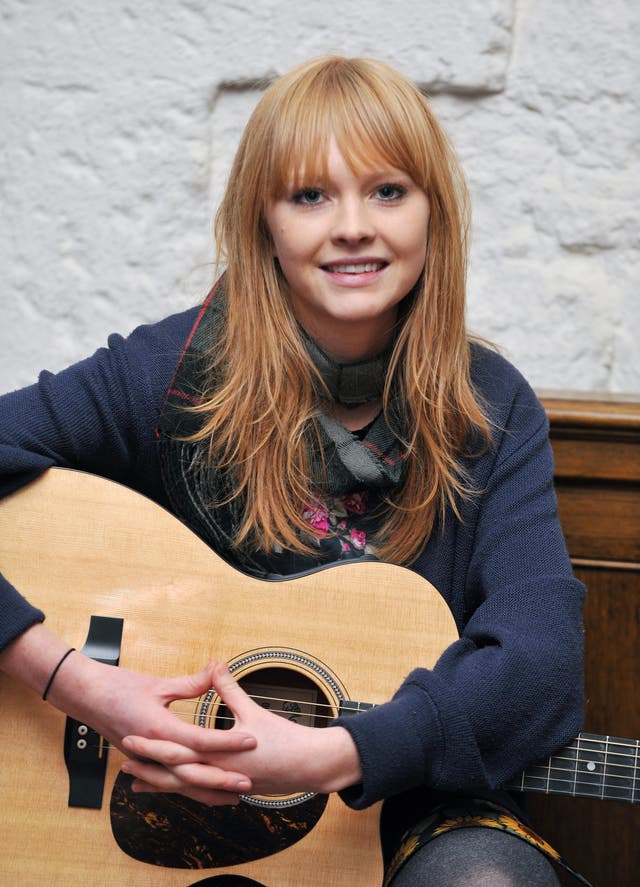Lucy Rose: Doctors told me to dial it down while I suffered rare osteoporosis
The musician said she could not move or lift her baby.

Musician Lucy Rose has said her doctor dismissed her rare form of pregnancy-associated osteoporosis as “part and parcel of having a baby” and was told to “dial it down” as she was being “over the top”.
The singer, a former backing vocalist for Bombay Bicycle Club, said the pain was so severe she collapsed as she went to lift her son out of his cot, telling the BBC: “I couldn’t pick up my baby, I couldn’t push a pram, I couldn’t even wash my hair.”
Recalling her visits to her GP, she said: “Every time I’d go in and it was the same thing.
“I’d be yelping in pain, then he’d prod my back and say: ‘There’s nothing wrong here – back pain is part and parcel of having a baby.’

“It got to the point where I was crying, begging for an MRI and the doctor told me I needed to dial it down and I was being over the top. It was really quite distressing.”
Rose eventually went to a chiropractor to try to relieve the pain but it made things far worse.
She said: “They cracked my back and it was the worst pain I’ve ever experienced.
“I was immediately like, ‘That can’t have been right, I’m going to be sick immediately’.”
After three months of trying to convince doctors that something was wrong, Rose’s husband paid for a private MRI scan and the results showed she had broken her back in eight places.
When she informed the NHS, the first she heard back was from lawyers.
“They emailed me saying: ‘This has been raised as a potential negligence case, and we advise you to get a lawyer.'”
“And I replied: ‘Please, I don’t want to sue the NHS. I just want to get better.'”
An agreement was ultimately reached in which Rose agreed not to pursue legal action, and the NHS reimbursed the cost of her MRI and treatment could begin.
She was diagnosed with the rare form of pregnancy-associated osteoporosis (PAO), a condition that weakens the bones and can lead to fractures and after a second scan, she was told her bone density was that of a 110-year-old.
“It’s quite shocking, isn’t it? Every movement made me think of it. Even breathing would make me think of it.”
“But you feel like a broken record when you talk about it all the time. After a while you become more and more closed in.”
It was the support of other sufferers and her newborn son Otis, who was born in 2021, that helped her get better.
She said: “I felt very unlovable at the time because I was just so sad – but for Otis I could pull a stupid face or shake a rattle and he’d be happy and pleased I was there.
“So that was a huge driving factor, having this baby that adores you. I was like, ‘This is not going to stop me. I am getting better.'”
It comes after the Society of Radiographers warned that a shortage of staff is leaving thousands at risk from osteoporosis.
The Society’s annual conference heard that a screening programme for people at risk of osteoporosis – often known as “the silent condition” because it can remain undetected until it causes injury – could prevent many from suffering “unnecessary” pain and injury due to the condition.
Richard Evans, chief executive of the Society of Radiographers, said: “If you know earlier on that you have osteoporosis, then you can take measures, such as dietary supplements or HRT, to prevent injury.
“A proper screening programme would be ideal, but we can’t do that without sufficient numbers of radiographers to make it happen – and we won’t have that without sufficient Government investment.”





